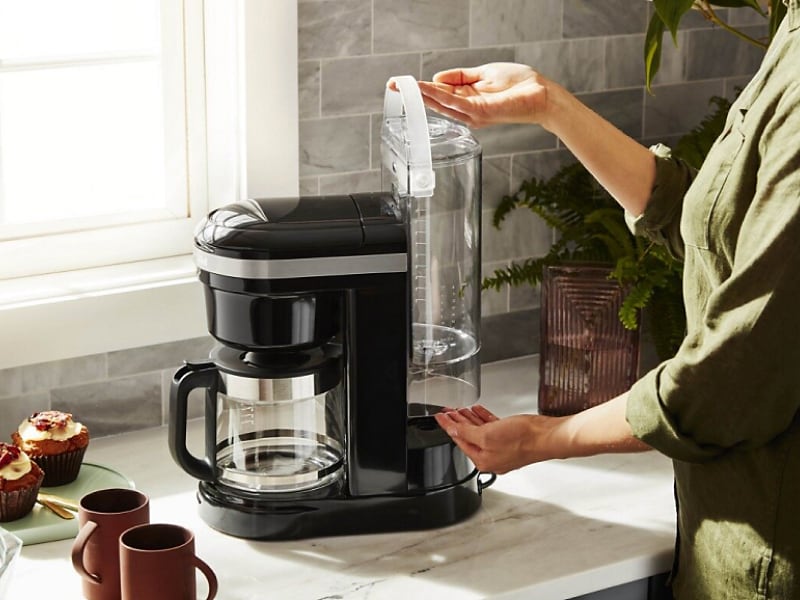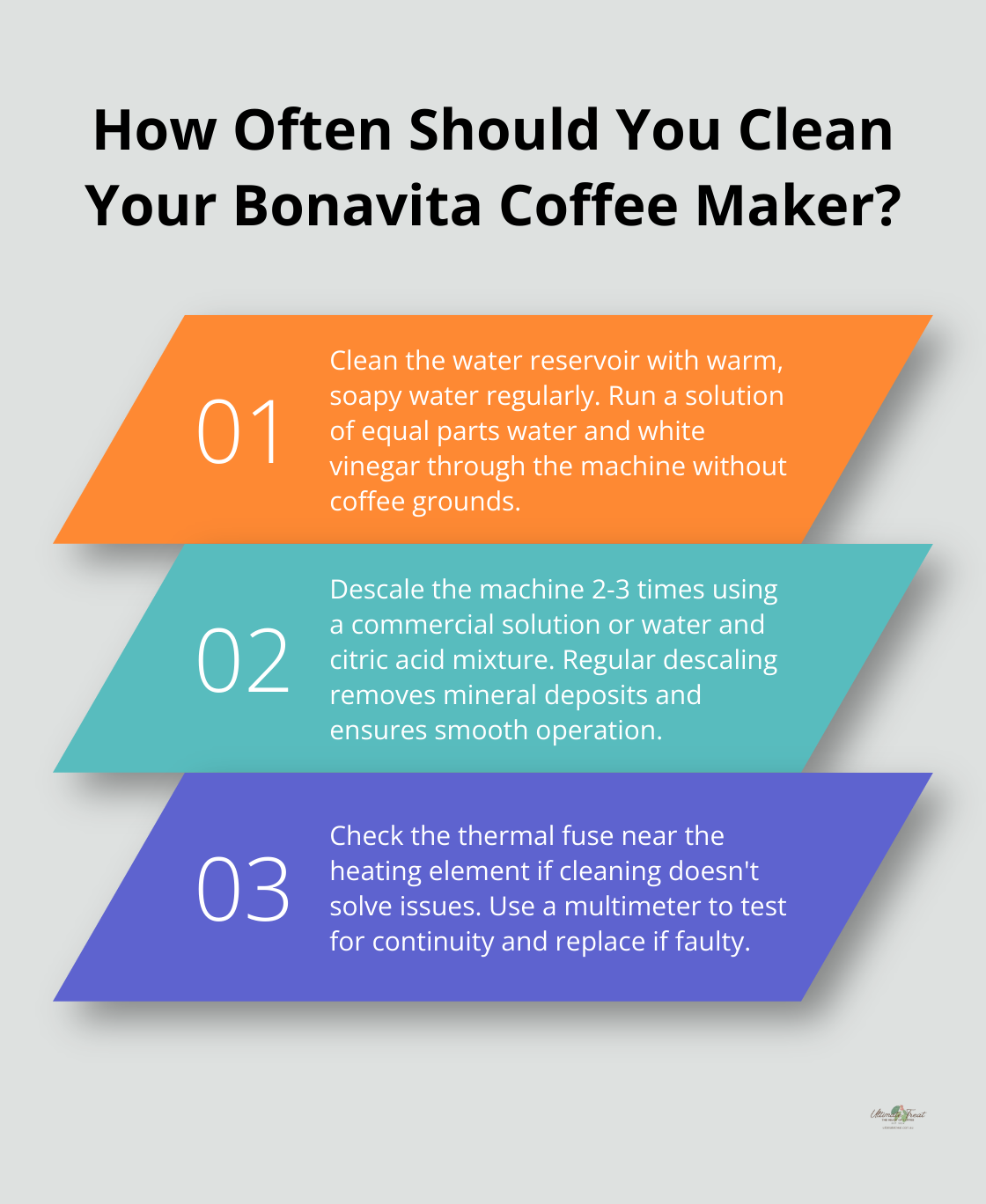If you're like me, the aroma of freshly brewed coffee is the perfect start to your day. But how often should you replace your coffee maker? This question often goes unasked until our beloved appliance starts acting up. Imagine waking up to a broken coffee maker—nightmare, right? In this guide, I will walk you through the signs, tips, and expert advice on when and why you should consider replacing your coffee maker. Keep reading to ensure your mornings remain blissful and caffeinated!

Source: www.kitchenaid.com
Understanding the Lifespan of Coffee Makers
What Determines a Coffee Maker's Lifespan?
Coffee makers, like any other appliance, have a finite lifespan. Generally, most coffee makers last between 5 to 10 years. Factors such as brand, usage frequency, and maintenance play a crucial role in determining how long your coffee maker will serve you.
- Brand and Quality: High-end brands often offer more durability and longevity.
- Usage Frequency: Daily use can shorten the lifespan compared to occasional use.
- Maintenance: Regular cleaning and descaling can significantly extend the life of your coffee maker.

Source: ultimatetreat.com.au
Common Signs Your Coffee Maker Needs Replacing
Even with regular care, there comes a time when you need to part ways with your coffee maker. Here are some signs to watch out for:
- Inconsistent Brewing: If your coffee tastes different every day, it might be time for a change.
- Leaking: Persistent leaks can indicate internal damage.
- Slow Brewing: If your coffee takes longer than usual, it might be nearing the end of its life.
- Strange Noises: Unusual sounds can be a sign of mechanical issues.
- Frequent Breakdowns: Constant repairs are a clear signal to get a new one.

Source: www.facebook.com
Why Replacing Your Coffee Maker is Important
Health and Safety Concerns
Old coffee makers can harbor mold and bacteria, posing health risks. A 2023 study from the Journal of Environmental Health revealed that coffee makers can be a breeding ground for germs if not cleaned properly. Regular replacement ensures your coffee is safe to drink.
Energy Efficiency
Newer models are designed to be more energy-efficient, saving you money on electricity bills. According to Energy Star, replacing an old coffee maker with an energy-efficient model can reduce energy consumption by up to 20%.
Enhanced Features
Modern coffee makers come with advanced features like programmable settings, Wi-Fi connectivity, and improved brewing technology. These features enhance your coffee experience and offer convenience.

Source: www.instagram.com
How to Extend the Life of Your Coffee Maker
Regular Cleaning
Regular cleaning is essential for maintaining your coffee maker. Follow these steps:
- Daily Rinse: Rinse the carafe and filter basket after each use.
- Weekly Wash: Wash removable parts with warm, soapy water weekly.
- Monthly Descale: Use a descaling solution monthly to remove mineral buildup.
Proper Usage
Using your coffee maker correctly can prevent unnecessary wear and tear:
- Use Filtered Water: Reduces mineral buildup and improves taste.
- Avoid Overfilling: Prevents overflow and potential damage.
- Follow Manufacturer's Instructions: Ensures optimal performance and longevity.

Source: parade.com
Invest in Quality
Investing in a high-quality coffee maker can save you money in the long run. Brands like Breville, Technivorm, and Cuisinart are known for their durability and performance.
Top Coffee Makers for Longevity
Breville Precision Brewer
Key Features: Adjustable temperature, six brewing modes, stainless steel carafe.
Pros: Durable, versatile, excellent temperature control.
Cons: Expensive, bulky.
Ideal Users: Coffee enthusiasts who value precision and customization.
Technivorm Moccamaster
Key Features: Copper heating element, manual adjust drip-stop, handmade in the Netherlands.
Pros: Longevity, consistent brewing, high-quality materials.
Cons: Pricey, lacks advanced features.
Ideal Users: Those seeking a reliable, high-quality coffee maker with a simple design.
Cuisinart DCC-3200
Key Features: 14-cup capacity, brew strength control, self-cleaning.
Pros: Affordable, programmable, easy to clean.
Cons: Plastic components, can be noisy.
Ideal Users: Budget-conscious individuals looking for a feature-rich coffee maker.

Source: www.kitchenaid.com
Frequently Asked Questions of How Often Should You Replace Your Coffee Maker?
How often should I clean my coffee maker?
Clean your coffee maker weekly and descale it monthly to maintain performance and hygiene.
Can I repair my coffee maker instead of replacing it?
Minor issues can be repaired, but frequent breakdowns or major problems often warrant a replacement.
Is it worth investing in an expensive coffee maker?
Yes, investing in a high-quality coffee maker can provide better performance, durability, and features.
What is the best way to dispose of an old coffee maker?
Recycle it at an electronic waste facility to minimize environmental impact.
How can I make my coffee maker last longer?
Regular cleaning, proper usage, and investing in a quality model can extend the lifespan of your coffee maker.
Conclusion
A coffee maker is an essential kitchen appliance for many of us. Understanding when to replace it ensures you enjoy fresh, delicious coffee every day. Remember, regular maintenance and investing in quality can extend the life of your coffee maker. If you're experiencing frequent issues, it might be time to explore new models with enhanced features. Don't let a malfunctioning coffee maker ruin your mornings—take action today!
Explore more on our website for additional resources, and feel free to leave a comment or subscribe for the latest updates.
Watch This Video on how often should you replace your coffee maker?




